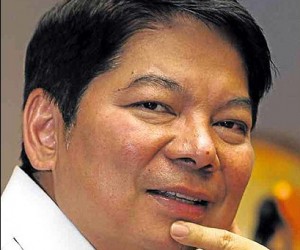AMLC seeks new amendments to law against dirty money deals
MANILA, Philippines—The Anti-Money Laundering Council hopes to persuade Congress to amend again the law against dirty money transactions, saying that the continued exclusion of casinos from a list of establishments required to report their financial activities has been hurting the Philippines’ image abroad.
Amando Tetangco Jr., governor of the Bangko Sentral ng Pilipinas and chairman of AMLC, told the Inquirer that the latest decision of international group Financial Action Task Force (FATF) to keep the Philippines on its grey list requires an act of Congress to further strengthen the Anti-Money Laundering Act.
In its plenary meetings held last month in Paris, FATF decided to keep the Philippines on its grey list. The list includes countries that are said to have made substantial progress in countering money laundering and terrorist financing activities, but have yet to fully comply with international standards.
FATF said in a statement that for the Philippines to be declared fully cooperative in the global fight against the illegal activities, the country would need to include casinos on the list of entities required to report transactions that potentially involve money laundering and terrorist financing.
FATF said it would soon send a mission to the Philippines to determine the country’s progress in terms of meeting international standards against dirty money deals.
“The onsite visit will confirm the process of implementing the reforms and is also expected to focus on the continued non-inclusion of casinos in the legislation on AML/CFT (anti-money laundering/countering the financing of terrorism),” Tetangco said.
On Feb. 15, President Aquino signed a measure putting more teeth to the country’s Anti-Money Laundering law.
The revised legislative measure now requires money changers, dealers of jewelry and precious metals, real estate companies, and pre-need firms to report to the AMLC suspicious transactions that may involve money laundering and terrorist financing.
Previously, only banks, financial institutions and some professionals were required to report such transactions to the AMLC.
Despite earlier recommendations to include casinos, the Philippine Congress ended up excluding these firms because of lobbyists’ concerns that the inclusion of casinos on the list would discourage people from going to these gambling establishments.
Despite the failure of the new legislation to include casinos, FATF decided against putting the Philippines on its black list as it recognized the country’s efforts to comply with some requirements.
The Philippines already has complied with the criminalization of money laundering and terrorist financing, adoption of procedures for freezing of assets believed to have come from terrorist and other illegitimate sources, and implementation of tighter rules on financial transparency, among others.

